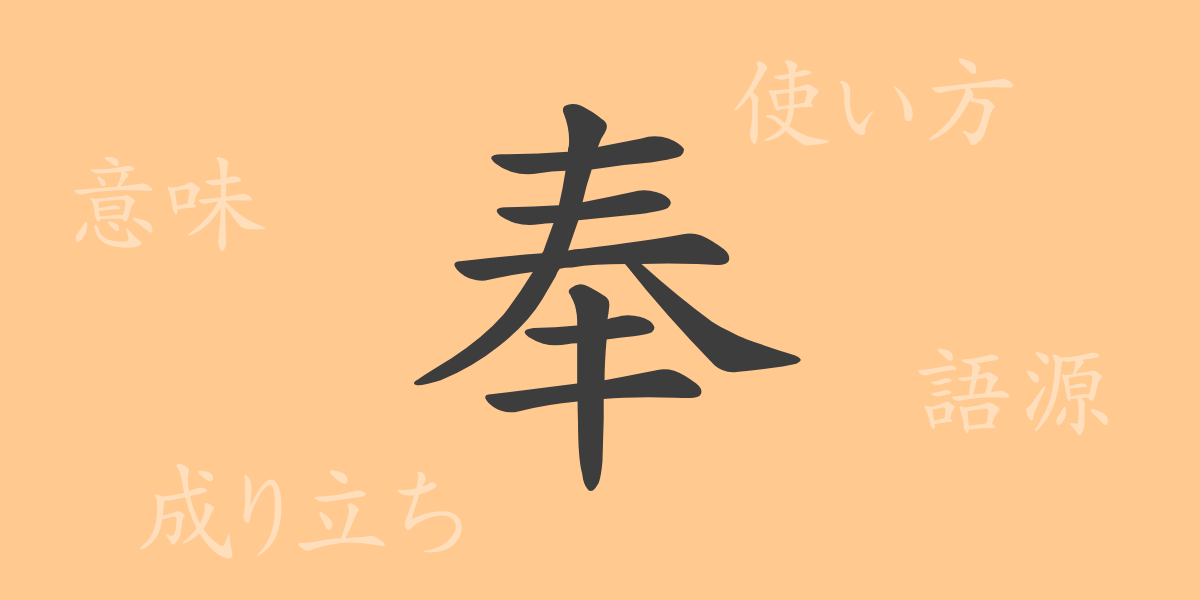Japanese culture is deeply rooted in 漢字 (kanji). The kanji used in Japan are known for their rich meanings and complex structures, with each character having its unique history and story. One such commonly used kanji is 奉 (hou), a character frequently seen in the daily lives of Japanese people. In this article, we will delve into the origins, meanings, usage, idiomatic expressions, and proverbs involving 奉 (hou) to uncover its charm.
Origins of 奉hou (hou)
奉 (hou) is a kanji that originated from ancient China, originally derived from a verb meaning “to offer.” In ancient times, it was used to signify offering food to the gods, and later came to denote the act of offering something with respect. The proactive nature and sense of respect inherent in the act of offering, represented by this character, is one reason why it remains valuable in many contexts today.
Meanings and Usage of 奉hou (hou)
奉 (hou) carries meanings such as “to offer,” “to dedicate,” and “to present respectfully.” It is often placed before other verbs or nouns to express respect or reverence. For example, 奉仕 (houshi) means “to serve” or “to offer service” without compensation to others or society, and 奉職 (houshoku) means to engage in a profession with respect.
Reading, Stroke Count, and Radical of 奉hou (hou)
The character 奉 (hou) has readings and attributes that correspond to its form and meaning.
- Reading: On’yomi (音読み) as “hou,” Kun’yomi (訓読み) as “tatematsu.ru”
- Stroke count: 8 strokes
- Radical: 大 (dai)
Idioms, Proverbs, and Phrases Using 奉hou (hou)
There are various idioms, proverbs, and phrases that include 奉 (hou). For instance, 奉公 (houkou) means serving in someone else’s house, and 奉納 (hounou) means offering tributes to a shrine. Additionally, the term 奉行 (bugyou) was an official position during the Edo period, and today it can also refer to a person in charge or a director. The expression 命を奉る (inochi wo tatematsuru) means to dedicate one’s life.
Summary on 奉hou (hou)
Through this article, we have deepened our understanding of the meanings and usage of 奉 (hou), as well as the idioms and proverbs that use it. This kanji, which has been passed down through generations, plays a vital role in the lives and language of Japanese people, reflecting a unique cultural background. Let’s continue to strive for a deeper understanding of the Japanese language through kanji like 奉 (hou).

























